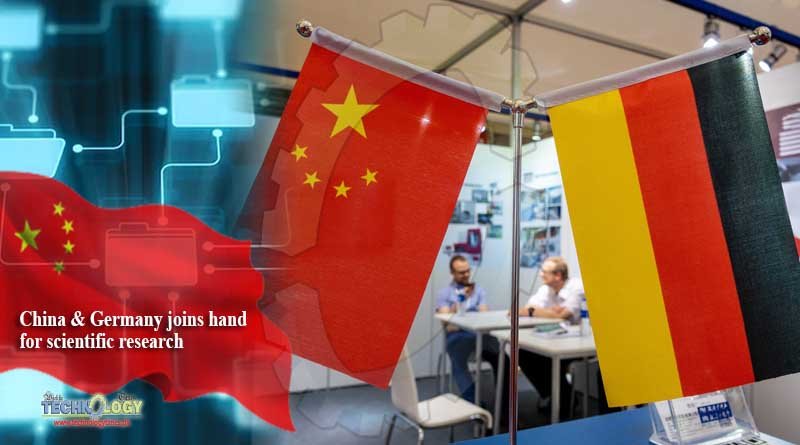The Chinese Academy of Sciences and the German National Academy of Sciences Leopoldina signed the Beijing Declaration, pledging to jointly promote scientific research and foster young scientists.
 The declaration, released on Monday at the opening of a joint conference, said basic science is at the heart of innovation and future science will be integrative, inclusive and responsible.
The declaration, released on Monday at the opening of a joint conference, said basic science is at the heart of innovation and future science will be integrative, inclusive and responsible.
The two academies agreed in the declaration that while science endeavors to explore the boundaries of knowledge, it must take on its share of social responsibility, be committed to contributing to sustainable development and strictly adhere to moral and ethical norms.
They pledge that they will organize a series of exchanges on scientific issues of common concern and further strengthen mutual trust, consensus and cooperation to establish a robust scientific environment in the international community.
“We are very proud that such powerful academies, the academy in China and our German academy, can form such an alliance,” said Joerg Hacker, president of the German National Academy of Sciences Leopoldina.
According to Hacker, basic research, motivated by “thinking out of the box”, lays the foundations for innovation, solutions and new applications and helps address global challenges today and in the future, but it needs time and long-term investment.
He said China has a very good scientific research system, but science is a global endeavor that requires international collaboration.
Science also needs an open and free atmosphere with no additional borders, he said. He explained that when he was working in the Scientific Advisory Board of the Secretary General of the United Nations, one of the main ideas they stressed was to remind countries that the exchange of talent and ideas is crucial for science.
“It is important for China and for Germany that we have the possibility to come together and discuss future problems. The declaration is just the starting point for our collaboration,” he said, adding that the two countries should “continue their cooperation”.
Katharina Kohse-Hoeinghaus, a professor from Bielefeld University, member of the German National Academy of Sciences Leopoldina and Co-Chair of the Organizing Committee of the Science for Future Conference, said the declaration is a “remarkable” document.
“It addresses the value of integrative international collaboration, which should be the goal for interactions also with other countries,” she added.
China in recent years has increased both investment and supportive policies to strengthen its basic scientific research ability and drive for innovation.
According to the National Bureau of Statistics, the country’s investment in basic research surpassed 100 billion yuan ($14 billion) for the first time last year as China broke into the world’s top 20 most innovative economies.